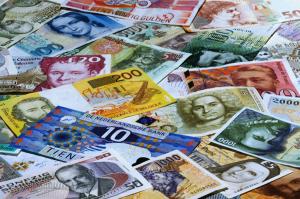If you try to do a google or a yahoo search for “forex trading” you’d be swamped with a search result spanning several pages and containing hundreds (perhaps even thousands) of companies offering on line forex trading services, all purporting to be legitimate forex brokers. But how would you really determine who is legit and who is not?
Retail spot foreign currency trading (as it is officially termed in the U.S.) or forex as it is commonly known here and about, started from the need of some major participating financial institutions to spread out the entailing risks of rapid and wide foreign currency exchange fluctuations among a wider base of participating investors. (It should be noted that foreign currency trading used to be the exclusive turf of huge banks and large financial institutions since transactions here are in volumes impossible for the ordinary investor to manage.) The introduction of the leveraged trading system (or margin trading) to the interbank spot foreign currency market opened the doors of the once exclusive foreign currency trading to ordinary individual investors. With the use of modern, internet based technology, linkages between the individual investors and participants of the interbank currency market were established using duly designated financial intermediaries such as brokers and investment houses.
However, taking advantage of the same, readily available technology and operating incognito through well designed and user-friendly web sites, boiler room operators continued to ply their trade facelessly, bleeding unsuspecting investors dry. These “scammers” uses trading platforms that simulates actual interbank trading linkages which were even designed by known software developers. The ordinary users of these trading platforms will really have no way of knowing whether or not their orders were actually executed with a participating bank or institution in the interbank currency market. For all you know, the orders may have ended up in a secretly guarded link in Macau while the invested funds remained in the hands of these scrupulous sweat shop operators. (As early as1990, the HK based company I used to work for and the other scam operators like the Solidlink Group - now SolidGold - to which the Infamous Michael Liew belonged, had set up a computerized trading network (which simulates the interbank currency market) based in some fancy office in the Portuguese Colony.
At this point, you may want to ask: ![]()
So what if it is not bank based as long as the reference rate of exchange on which a particular trade is “executed” is based on the spot market rates? True. True enough. However, the risk of investing money with a scam operator is not with the seemingly real trading being done using their platform but with the fact that they can always ran away with your money anytime and you will be left holding an empty bag with no clue as to how and where you can seek redress, as in the case of PIPC in the Philippines.
![]() How then can we avoid these? How would we know who is a legitimate forex broker and who is not when the only information we have is what we get from their web pages? Precisely, never trade through a broker who does not provide you with the necessary information about their company.
How then can we avoid these? How would we know who is a legitimate forex broker and who is not when the only information we have is what we get from their web pages? Precisely, never trade through a broker who does not provide you with the necessary information about their company.
But what information about the broker must I have to know if my money would be safe to invest through them? Among other things (like length of existence as a broker, licenses and certifications collected from legitimate financial institutions and known clients) you must also demand to know if the company or the company it is affiliated with is a member of the US National Futures Association and is registered with the US Commodity Futures Trading Commission. If they are not US based, they must instead provide you information and proof of their trading linkages with a prestigious bank or financial investment house. Make it a general rule not to deal with internet based forex broker who does not provide these information on their web pages.
But they can always falsify these information? you can easily check them out with NFA. Accredited members of NFA proudly display their membership id in their web sites. Whether they provide you with the id or not, you can always check on them easily at the NFA website (http://www.nfa.futures.org/basicnet/welcome.aspx). Again, if they or their affiliate is not US based, they must provide you with verifiable documentation of their bank or financial institution’s linkages.


No comments:
Post a Comment